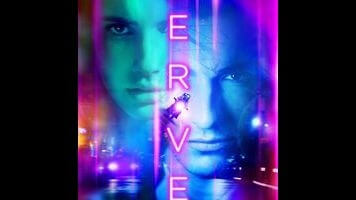Nerve is a techno teen movie for the Pokémon Go era

Strangers race across city streets at all hours of the day and night, guided into sometimes dangerous situations by a popular new game they’re playing on their phones. No, this isn’t a hastily assembled documentary on the Pokémon Go phenomenon. But the overnight success of that augmented-reality sensation does add an extra touch of plausibility—and a big shot of serendipitous topicality—to Henry Joost and Ariel Schulman’s bright, brisk, and enjoyably silly Nerve, which filters a one-crazy-night scenario through a state-of-the-web address. It’s the most technology-obsessed teen movie since last year’s Unfriended.
In fact, Nerve begins the exact same way that radical horror experiment did: on the open browsers and applications of a high-school girl’s laptop. The computer belongs to Venus (Emma Roberts, 25 but playing 18), a Staten Island senior mulling four years at her dream school, CalArts—a no-brainer decision made more complicated by the recent death of her older brother and the subsequent clinginess of her mother (Juliette Lewis). A type-A not prone to spontaneous behavior, Vee follows the lead of impulsive BFF Sydney (Emily Meade)—the Ferris to her Cameron—and signs up for the online competition Nerve, a game that allows “watchers” to pay “players” to accept dares. The money goes up as the risk escalates, which Vee discovers when she ends up hopping around New York City, accepting gutsier dares with Ian (Dave Franco), the motorcycle-driving stranger she’s prompted to kiss.
At first, the challenges are just tests of courage and races against the clock. Soon, however, the users begin making more perilous demands—go 60 on the bike, blindfolded, or lose everything—and Nerve reveals the dark underbelly of Nerve, taking aim at the internet as a conduit for anonymous cruelty. Joost and Schulman went somewhere similar with their first feature Catfish, another study of the damage that can be done from a keyboard. Here, the two treat their material—culled from a YA novel, which explains the prototypical good-girl-romanced-by-a-bad-boy angle—as an opportunity to do some reality augmenting of their own. Text interactions and (reliably unsparing) user comments scroll in columns down the screen, while wide shots of the skyline are marked by digital flags, rising upward to identify different users scattered throughout the city. Though not a found-footage movie, Nerve cuts frequently to the squashed vantage of an iPhone camera. Elsewhere, Joost and Schulman turn the laptop screen into a translucent barrier, the text printed backward on its surface—a visual choice that makes little technological sense, but which evokes a feeling of surveillance, as though the web itself had eyes.
From time to time, the effect is of watching a movie through a social-media scrim: Viewers weaned on the visual data of their own real programs should have no trouble adjusting to the user names stamped in the left corner of the frame or the live “watcher” counter ticking in the right one. The film could have gone further with these tics; it’s not nearly as committed to its gimmick as Unfriended was. But Joost and Schulman give their combination whirlwind romance and techno-thriller an (eye-) candy shell. New York becomes a neon nightlife paradise, bathed in pools of alluring color—an electric blue glow illuminating the underside of Ian’s bike, a designer dress sparkling brilliant green under the city lights. It’s a bit like the hybrid metropolis of Her, or maybe Manhattan as a pinball machine. This urban re-planning is also one of the more attractive features of a movie that feels designed for maximum demographic appeasement, from its track list of electronic-leaning hits to its young, likable stars. Nerve is pure product, but it’s sleekly appealing to that end.
The script, by American Horror Story’s Jessica Sharzer, never quite communicates the full scope of Nerve (is it global or just an NYC fad?), and the film gets goofier the more “serious” it becomes, culminating with a climax that’s like the Hunger Games as staged by Anonymous. But in its speechifying way (look out for a lecture of “Are you not entertained?” proportions), the film does take the temperature of its moment: If The Truman Show and EDtv once felt hyper-current in their recognition of the way new media was making instant celebs out of “normal” exhibitionists, Nerve acknowledges that star-is-born stories are now happening in real time, fates rising and falling at the whims (and clicks) of an ocean of faceless users. Anyway, like most films about technology, Nerve will endure as a time capsule, fascinating future generations with either its prescience or its quaintness. Will the outrage of its premise one day seem dated? Remember, there was a time when only hermetic hackers ordered pizza online.